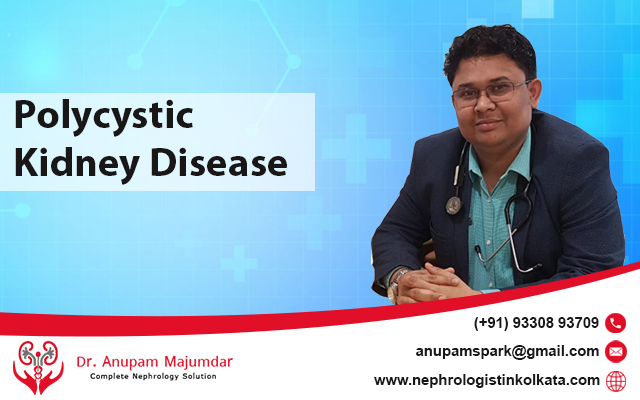A type of inherited disorder is polycystic kidney disease (PKD). Fluid-filled cysts form in your kidneys in this condition. This causes your kidney to enlarge and lose function as time passes. There can be damage to your kidneys if the cysts are large or are many. Cysts can also develop in your liver or other areas of your body in this condition. It may lead to severe complications including high blood pressure and kidney failure.
Symptoms Of Polycystic Kidney Disease
There are various symptoms of polycystic kidney disease, which include:
- High blood pressure
- Blood in your urine
- Side or back pain
- Increase in the size of your abdomen due to enlargement of the kidneys
- A feeling of fullness in your abdomen
- Headaches
- Kidney failure
- Kidney stones
- Urinary tract or kidney infections
If you have these symptoms, don’t neglect and consult a kidney specialist in Agartala.
Causes
PKD can happen due to abnormal genes. This disease is hereditary in most cases. The genetic mutation is often spontaneous. Different genetic flaws result in the two types of polycystic kidney disease.
-
Autosomal dominant polycystic kidney disease (ADPKD): If even only one of the parents has this disease, it can pass to the children. This happens in most cases of this disease.
-
Autosomal recessive polycystic kidney disease (ARPKD): In this disease, the symptoms often appear shortly after birth. However, in some cases, symptoms appear later in childhood or during adolescence.
Diagnosis
The best kidney doctor in Kolkata will ask you to undergo certain tests that will help him/her to know the size and the number of kidney cysts in your body.
-
Ultrasound: On your body, a transducer, which is a device like a wand, is placed during this test. Sound waves emitted from the wand get reflected in it and are translated into your kidney images by a computer.
-
CT scan: You will go into a device projecting thin X-ray beams through your body. Your doctor will be able to see your kidneys’ cross-sectional images.
-
MRI scan: Magnetic fields and radio waves generate cross-sectional views of your kidneys as you lie inside a large cylinder-like device.
Treatment For Polycystic Kidney Disease
The best nephrologist in Agartala deals with different signs, symptoms and complications while treating polycystic kidney disease.
-
Kidney cyst growth: The doctor prescribes medicines that slow the kidney cyst growth rate and kidney malfunctioning.
-
High blood pressure: The progression of the disease and further kidney damage get slow when the specialist controls high blood pressure.
-
Declining kidney function: You need to maintain normal body weight as per expert advice to keep your kidneys properly functioning as long as possible.
-
Pain: You can control the pain of polycystic kidney disease by taking medicines as prescribed by the doctor.
-
Kidney infections: You must take proper antibiotics for treating kidney infections to prevent kidney damage.
-
Blood in the urine: Dilute the urine by drinking lots of water or other fluids as you notice blood in your urine. This often prevents the forming of obstructive clots in your urinary tract and the bleeding stops.
Kidney failure: You will ultimately need dialysis or kidney transplant if your kidneys lose the ability to filter impurities from your blood.

